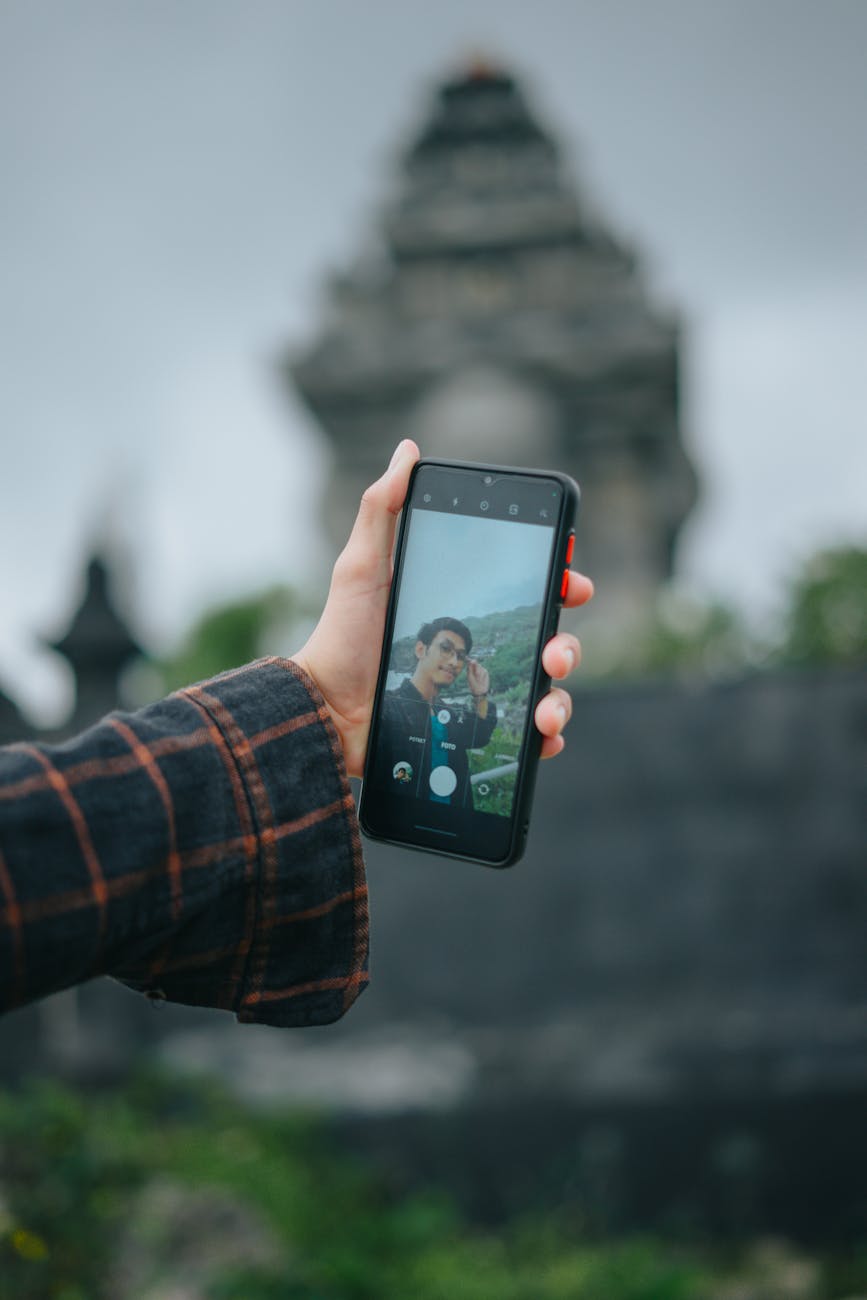Table of Contents
1. Introduction
2. What are Virtual Tours?
3. Benefits of Virtual Tours
4. How to Prepare for a Virtual Tour
5. The Future of Holiday Planning
6. The Human Touch
7. Future Holiday Planning with Virtual Tours
8. Wrap Up
9. Frequently Asked Questions
Introduction
In a world that never slows down, the art of holiday planning is evolving at a remarkable pace. The advent of virtual tours represents an exhilarating leap into a future where dreams can be explored from the comfort of your couch. Imagine standing on the pristine beaches of Bali or wandering the lush gardens of Kyoto without leaving your living room. This blog will delve into the vibrant realm of virtual tours and explore their transformative impact on the travel planning experience.
Embracing the technological advancements of recent years, virtual tours are not just a novelty; they represent a pivotal shift in how we approach our holiday aspirations. With the power to immerse oneself in diverse landscapes, cultures, and experiences, travelers are now equipped with tools that not only inform but inspire. Through the lens of virtual tours, a new era in travel planning unfolds, one bursting with possibilities and excitement.
What are Virtual Tours?
At its core, a virtual tour is an innovative technology that takes you on a digital journey through a specific location. These immersive experiences often consist of 360-degree photographs, videos, and interactive elements that allow users to explore various landscapes and settings in a lifelike manner. Ranging from stunning landmark tours to intimate walks through local markets, virtual tours can capture the essence of a destination like never before.
The magic of virtual tours lies in their ability to transport you to far-off places while you remain in your own space. By showcasing everything from historical sites to contemporary hotspots, these tours provide flexibility and freedom. As technology continues to advance, the depth and quality of virtual tours are becoming increasingly sophisticated, drawing travelers deeper into each unique experience. Exploring new worlds is as simple as clicking a button, making travel dreams more accessible than ever.
Benefits of Virtual Tours
The advantages of incorporating virtual tours into travel planning are immense. For starters, they offer a unique opportunity to preview potential destinations before committing to a trip. Instead of being swayed solely by promotional photos that may not accurately depict reality, travelers can gain a genuine insight into what a location has to offer. This allows for informed decision-making and ensures that holiday plans align with personal expectations.
Additionally, virtual tours are profoundly advantageous for those limited by time and mobility constraints. Families with young children, elderly individuals, or anyone facing physical challenges can benefit immensely from the ease of accessing gorgeous destinations that they may not be able to visit in person. Even those juggling a hectic schedule are able to carve out time for a quick escape to distant lands. Ultimately, this inclusivity fosters a broader appreciation of global culture and communities—as everyone can engage with the vast world around them.
How to Prepare for a Virtual Tour
Preparation is key to making the most out of your virtual tour experience. An ideal starting point would be selecting the right platform that offers diverse and high-quality tours. There are numerous websites and apps dedicated to providing immersive visuals, often including expert narrations that enhance your journey. The more options available, the easier it is to find specific experiences that match your interests.
Next, setting yourself up in a conducive environment can elevate the experience. Make sure to choose a comfortable spot, free of distractions, and use headphones for an immersive audio experience. It’s also helpful to keep a notepad handy for jotting down your thoughts or any locations that jump out. Perhaps plan to savor a local dish related to the destination that you’re exploring—this will allow you to engage all your senses and deepen the connection to the place you are visiting, even if only virtually.
The Future of Holiday Planning
Forecasting the future of holiday planning suggests that virtual tours will soon be at the forefront of the travel industry. As technology advances and becomes even more accessible, personalized experiences will redefine how travelers approach their dream vacations. Think about it! With sophisticated AI algorithms, prospective travelers will receive tailored virtual tours based on their preferences, previous trips, and even real-time travel trends.
Moreover, the integration of augmented reality may elevate these virtual experiences into an entirely new realm. Imagine using your smartphone or headset to overlay local culture, history, and interactions upon the sights you see. You could walk virtually through ancient ruins, while an interactive guide shares fascinating stories that enliven your understanding. This layered experience could make holiday planning not just desirable but exhilarating, bridging the gap between fantasy and reality.
The Human Touch
Despite the undeniable benefits of virtual tours, it’s important to acknowledge the human element that travel encompasses. Meeting locals, trying authentic cuisine, and immersing oneself in a new culture can’t be fully replicated virtually. Nevertheless, virtual tours are exquisite tools for sparking interest and fostering connections with potential destinations. By showcasing what awaits travelers, they can generate excitement, inspiring individuals to step outside their comfort zones once the time comes to travel.
These tours act as a bridge, resonating with wanderlust while simultaneously preparing travelers for real experiences. Engaging in local customs, understanding local context, and pre-planning exciting activities can be more vivid after going through a virtual tour. Ultimately, marrying technology with traditional travel ensures that the allure of exploration remains alive, even when physically distant.
Future Holiday Planning with Virtual Tours
As we look forward, the role of virtual tours in future holiday planning is undeniably profound. With advancements such as virtual reality headsets or 360-degree video content, travelers may experience even greater realism. Imagine genuinely feeling the sand between your toes or hearing the distant sounds of street vendors while virtually strolling through a vibrant market.
Equipped with immersive tools, holiday planning will become a rich tapestry of experiences. Travelers will not only have a better understanding of their destination but will also engage with various aspects such as climate, local traditions, and hidden gems. This means that future trips will likely encompass a deeper appreciation for what each location has to offer, merging anticipation with knowledge.
Wrap Up
The evolution of travel is a thrilling journey, and with the introduction of virtual tours, holiday planning is entering a transformative stage. These immersive experiences not only enhance our understanding of the world’s wonders but also foster enthusiasm as we explore new destinations. As technology continues to revolutionize travel, the possibilities for using virtual tours are endless, ultimately leading to richer and more fulfilling travel experiences. In this digital age, embracing virtual interactions can also foster a deeper connection to the places we long to visit.
Frequently Asked Questions
- What are some popular virtual tour platforms? There are many notable platforms like Google Arts & Culture, AirPano, and VirtualTourist that offer a wealth of amazing virtual tours spanning numerous attractions worldwide.
- Can virtual tours replace in-person travel? While virtual tours provide a unique experience, they serve as complements to real travel rather than substitutes. They can inspire and help plan but do not fully replace the richness of authentic experiences.
- How do virtual tours enhance cultural understanding? These tours allow users to explore local customs, historical sites, and community life. Engaging with different cultures virtually provides an opportunity for learning and appreciation before experiencing it personally.
- Are virtual tours suitable for all ages? Absolutely! Virtual tours can be enjoyed by people of all ages, making them a fantastic tool for educational opportunities and family bonding, allowing everyone to explore together.
- Do I need special equipment for virtual tours? In most cases, just a computer or device with internet access is sufficient. However, to amplify the experience, virtual reality headsets can make the tour even more immersive.
Image Credit: Pexels





